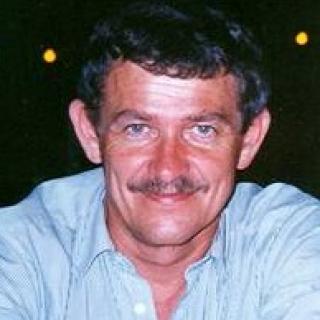Ferenc Mayer was born on 21 August 1951 in Zalaegerszeg, Hungary. Following the political events of 1956, he and his family fled the country, ending up in Lausanne. Ferenc completed high school in 1968 at Collège Champittet, near Lausanne, and then studied medicine over the course of ten years at the University of Lausanne – he took two years off during this time to engage in competitive sports.
After finishing his studies, Ferenc gained hands-on medical experience in hospitals and clinics from Lausanne to Geneva. He worked in gynaecology-obstetrics at Morges Hospital (June 1978 to September 1979); traumatology at Lausanne University Hospital (December 1979 to April 1980); surgery at Lausanne University Hospital, and general care at the Longeraie medical clinic in Lausanne (April 1980 to April 1981); surgery at Morges Hospital (April 1981 to April 1982); ophthalmology at Lausanne University Hospital (April 1982 to October 1982 ); and ear, nose and throat medicine at Lausanne University Hospital (October 1982 to March 1983). When he applied to the ICRC, he was working at the Eaux-Vives medical clinic in Geneva.
Ferenc’s initial aim with the ICRC was to secure a short-term assignment – between three and six months. He applied in January 1984 and, after completing a couple of weeks of military service, joined the organization in March.
Ferenc turned out to be a high energy employee. According to his official record, he completed some 18 long-term assignments over his career with the ICRC. In these postings, he served as a medical or health coordinator in Beirut, Teheran (twice), Manila (four times), Managua (Nicaragua), Paramaribo (Suriname), San Salvador, Kabul, Pretoria (three times), Baghdad, Jakarta and Moscow. This 17-year period – from March 1984 to December 2001 – was punctuated by stints back at Geneva headquarters.
Perhaps more tellingly, a detailed list of Ferenc’s professional travels over just the first 13 years of his time with the ICRC, from March 1984 to February 1997, shows that he carried out more than 60 assignments. This large figure includes all the short trips he made to this or that conflict zone – often at the drop of a hat – from his long-term posting of the moment. These ad hoc assignments often lasted for just a few days or weeks.
During that 13-year period, he set foot in – in no particular order – the Middle East, South-East Asia, South America, Africa, the Arabian Peninsula, Western Europe, Eastern Europe, Central Asia, the Caribbean, Central America, the Caucasus and North America. This account, which Ferenc compiled himself, also provides a more granular view of his day-to-day experience: he writes of medical work, health programmes, prison visits, hostage situations, rough terrain, refugee camps, security problems, PoWs and political prisoners, negotiations, the repatriation of human remains, and supply and inventory management.
Another way to look at Ferenc’s achievements is to focus on a given year based on his annual employee evaluation. In 2000, for example, he worked mainly out of the ICRC’s regional office in Pretoria but also out of the organization’s Moscow office for a month and a half. During his time in southern Africa that year, much of his attention was focused on several countries that were not normally covered by the Pretoria office. In Chad, for example, he provided medical assistance; participated in annual prison visits; helped evaluate and develop orthopaedic prosthetics for mine victims; kept tabs on serious wounded cases; and checked up on the health of a group of rebel prisoners. In Namibia, he took part in detention visits in relation to the Caprivi conflict and the conflict with Southern Angola, and he carried out orthopaedic evaluations and proposed a prosthetic programme for mine amputees. Within the region covered by the ICRC’s Pretoria office, Ferenc went to the Comoros to set up a training class on cholera for first-aiders from the country’s Red Crescent society, and he made detention visits in Lesotho. During his six-week spell in Moscow, Ferenc served on the team visiting Chechen detainees in Russia and Chechnya.
This picture of Ferenc’s activities throughout 2000, necessarily incomplete, nevertheless conveys a sense of his wide range of responsibilities and high level of mobility.
The aforementioned assignment in Pretoria started in March 1999 and was scheduled to end in early 2002. A few months before that – on 18 December 2001 – Ferenc went missing. He was last seen leaving his office in Pretoria, and his abandoned car was found several days later in Johannesburg. He was 50 years old. The circumstances surrounding his disappearance remain a mystery, and his fate has not yet been clarified.
Ferenc’s humanitarian drive made him a legendary figure at the ICRC. In addition to his medical knowledge and expertise, he was roundly recognized for his professionalism, flexibility and can-do attitude despite often rudimentary or even downright dangerous working conditions. These attributes added up to an unwavering commitment to, and impact on, those he served.
